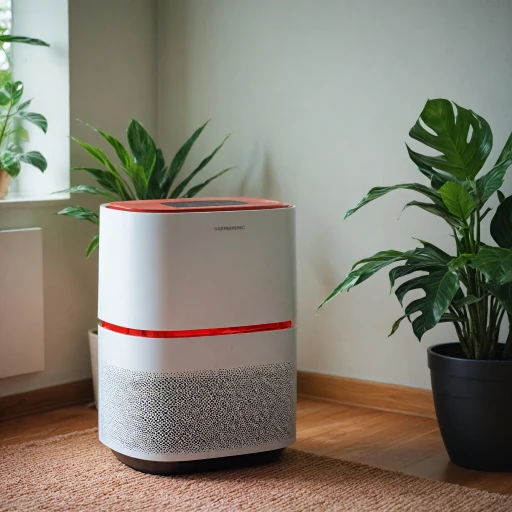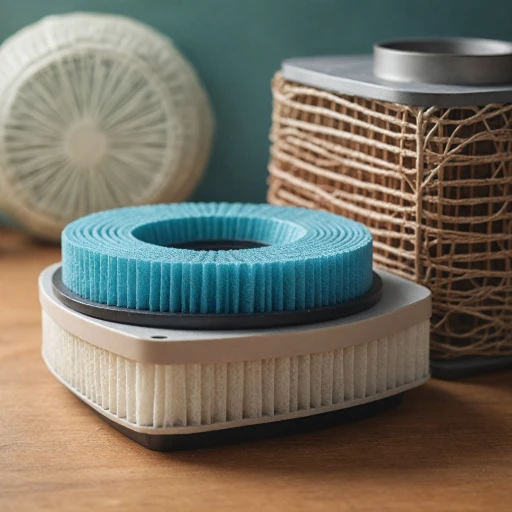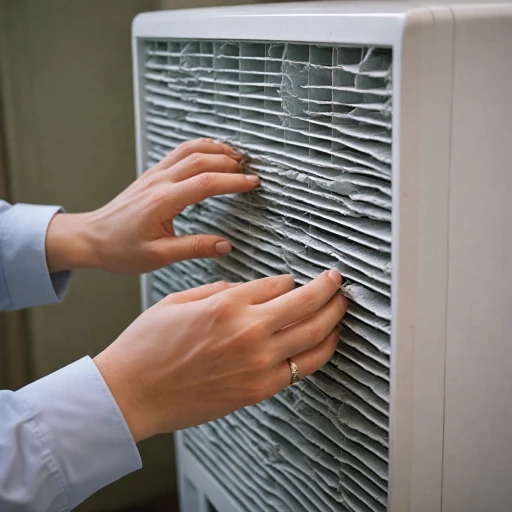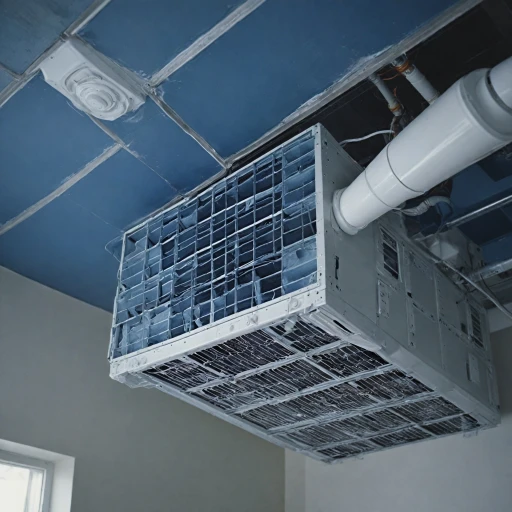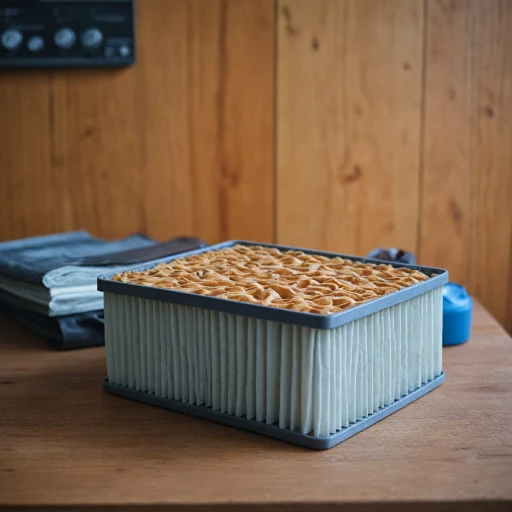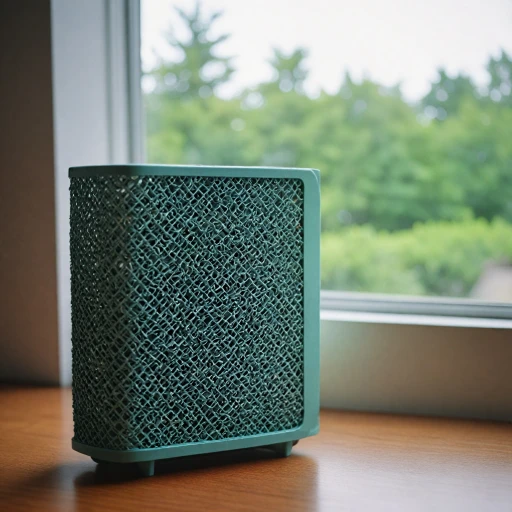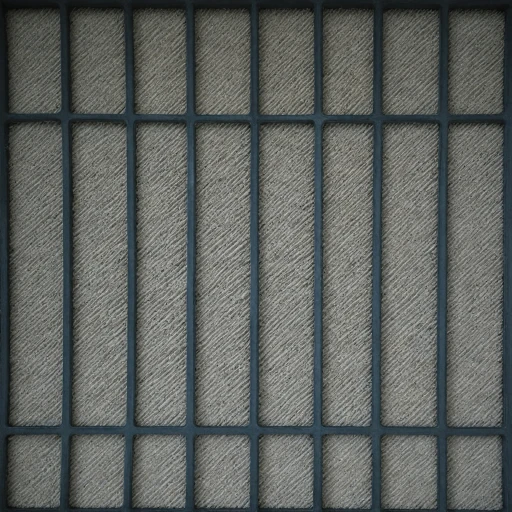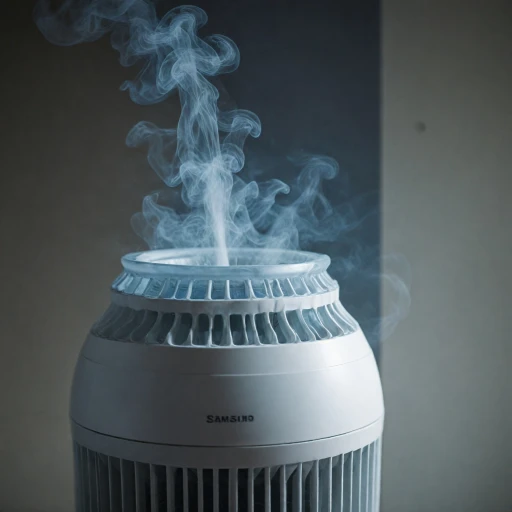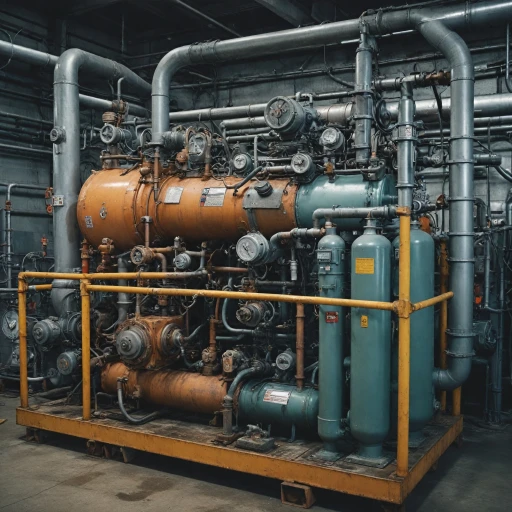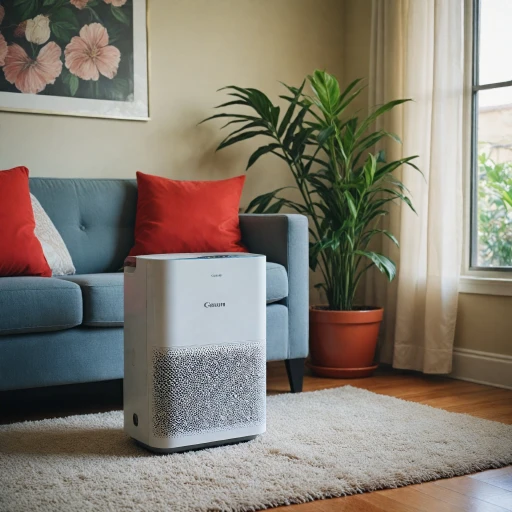
The Basics of Ventilation Hood Filters
An Introduction to the Importance of Ventilation Hood Filters
Ventilation hood filters play a critical role in air purification, especially in environments like commercial kitchens where grease, smoke, and other airborne contaminants are prevalent. These filters are vital components of the ventilation system, ensuring that the air remains clean and safe to breathe. The primary function of a ventilation hood filter is to trap grease and particles, preventing them from accumulating in the exhaust system, which could lead to fire hazards or inefficient air circulation. They work in conjunction with exhaust fans to pull air through the filter, removing contaminants before they can spread. Several types of filters are available, each designed to meet specific needs. From mesh filters that trap small particles to specialist stainless steel options that cater to heavy-duty kitchen environments, choosing the correct filter is essential. Consider factors like the level of grease in the air and the type of hood when deciding which filter is best suited for your system. Given their importance in maintaining air quality, ventilation hood filters must be carefully maintained. Regular cleaning and timely replacement increase their efficiency and prolong the lifespan of your hood system. Additionally, exploring hood accessories can further optimize performance, ensuring effective capture and removal of contaminants. Incorporating a reliable hood filter system can also support a comprehensive fire suppression strategy by reducing the risk of grease build-up in ducts and exhaust fans. Furthermore, many modern filters meet classified standards, ensuring they comply with fire safety regulations and improving overall safety in high-risk environments. To learn more about enhancing air quality with effective ventilation solutions, see how UV light bulbs can be integrated with air conditioners here. The right choice of ventilation hood filters can make a significant impact not just on air quality, but also on the safety and efficiency of your ventilation system. More about selecting the right filter type can be explored in the subsequent sections.Types of Ventilation Hood Filters
Diverse Types of Ventilation Filters Unveiled
Ventilation hood filters are pivotal to restaurant kitchens, commercial setups, and home environments. Depending on their functional purpose and design, different types of filters are employed to ensure optimal air quality. Below is a breakdown of the common types, ensuring you can make informed decisions.
- Mesh Filters: Often seen in residential range hoods, these filters are made from layers of aluminum mesh. They work by capturing grease particles from cooking vapors, ensuring grease does not build up in your exhaust fans or ducts. They are effective, easy to clean, and affordable.
- Baffle Filters: Crucial in high-cooking environments like restaurants, baffle filters are often made from stainless steel and are renowned for their efficiency in managing grease droplets. The unique design causes grease to condense, directing it to a collection trough, thus preventing grease build-up in grease ducts.
- Charcoal Filters: These are used mainly for odor removal. Charcoal filters need replacement more frequently than other types since they are less effective over time and cannot be washed. However, they play an essential role in keeping indoor spaces smelling fresh.
- Grease Filters: Designed to catch grease and other particles, grease filters are common in both home and commercial kitchen setups. They are often part of classified meets standards to prevent fire hazards by keeping grease and dirt away from the exhaust fan and ducts.
Considering these types, the enhancement of indoor air quality through appropriate ventilation systems cannot be overstated. Proper selection and maintenance of hood filters are essential for efficient operation in both domestic and commercial settings. Make sure to evaluate the functions each type serves, their compatibility with your hoods, and the environments they are best suited for when selecting the right ventilation hood filter for your needs.
How Ventilation Hood Filters Improve Air Quality
Enhancing Kitchen Air Quality with Effective Filter Systems
Ventilation hood filters play a pivotal role in improving the air quality within kitchens, both commercial and residential. The filter system, often made from stainless steel or mesh, acts as a barrier against grease, smoke, and other pollutants that result from cooking. These filters effectively reduce the presence of airborne contaminants, which is crucial in maintaining a healthy indoor environment. Commercial settings like restaurants heavily rely on ventilation hoods equipped with grease filters to ensure their exhaust fans efficiently manage the large volumes of air laden with grease and smoke. When filters, especially those classified under CLS or stainless steel grease ducts, work optimally, they trap grease particles, preventing them from entering the duct system. This not only improves air quality but also reduces the risk of grease fires. For homeowners, range hoods equipped with charcoal or mesh filters help in minimizing odors and capturing vapors that arise during cooking. This is especially beneficial in smaller spaces where smoke and odors can quickly fill the room. By installing an effective range hood with quality filters, you enhance the overall air circulation and quality in your kitchen. Maintaining these filters is essential for continuous air purification. If filters are not properly cleaned or replaced regularly, they can become clogged, reducing the efficiency of the exhaust fan and leading to poor air quality. For more detailed guidance on upkeep and filter replacements, you might find it helpful to check how to efficiently replace your dehumidifier filter. Incorporating fire suppression systems along with these hood filters further enhances safety by reducing the risk of fire hazards linked to grease build-up. Moreover, as the need for high-efficiency ventilation grows, opting for classified meets standards and conversion kits suitable for your specific setup can significantly impact air quality and safety. Hence, integrating the right combination of filters, exhaust fans, and hood accessories, available often with free shipping offers, goes a long way in maintaining optimal air purity within the culinary workspace.Maintenance and Replacement of Ventilation Hood Filters
Maintenance Matters: Ensuring Effective Hood Filters
Proper maintenance and timely replacement of ventilation hood filters are crucial to ensure their efficient performance. Regular upkeep helps in prolonging the life of the filters and maintains the air quality, especially in environments like commercial kitchens. Here's a breakdown of essential maintenance tips:- Inspect your hood filters regularly for grease and dirt accumulation. This prevents blockages that can restrict air flow, reducing efficiency.
- Some filters, like the stainless steel and mesh filter types, are easy to clean and can be reused after a thorough wash. Submerge them in warm soapy water, use a non-abrasive brush, and let them dry completely before reinstallation.
- Classified meets standards ensure that filters, such as grease filters and spark arrestor types, adhere to fire safety regulations. Regular checks can prevent fire hazards.
- Different materials, like charcoal, used in filters require specific care methods as they can capture odors more effectively. Timely replacement is key since they lose efficacy over time.
- Factors such as frequency of use and the type of cooking dictate how often exhaust fans and filters need maintenance. A thorough monthly cleaning should suffice for moderate usage.
- Utilizing hood accessories and maintaining a schedule for checking the grease duct, air filters and fire suppression system will contribute to a seamless operation.
- If you're unsure about maintenance cycles, many manufacturers provide a conversion kit with manuals, offering guidance on upkeep and replacement schedules.
Choosing the Right Ventilation Hood Filter for Your Needs
Selecting the Perfect Hood Filter
When it comes to choosing the right ventilation hood filter, your decision can significantly impact the effectiveness of your air purification system. Here's a concise guide to help you make an informed choice.
Consider Your Cooking Environment
The selection of the appropriate hood filter begins with understanding the environment in which it will operate. Whether you're a home cook or run a commercial kitchen, different setups demand different solutions. For instance, powerful exhaust fans in a restaurant might require a robust stainless steel filter, while a domestic setup could suffice with a simpler mesh filter.
Identify Your Climate Needs
Another factor to consider is the climate and specific purification needs. Filters vary in their ability to trap grease, smoke, and other particles. Hood accessories such as grease filters and spark arrestors serve distinct purposes in fire suppression and ensuring clean air.
Check Material and Design
- Stainless Steel: Ideal for heavy-duty cooking environments where durability and easy cleaning are priorities.
- Charcoal: Effective for eliminating odors, perfect for less commercial use.
- Mesh Filters: Affordable and suitable for low-grease cooking, regular replacement might be necessary.
Evaluate Price and Maintenance
Your budget and the maintenance effort you're willing to invest also play a role. Higher initial sale prices may offer longer-lasting and more efficient options, while choosing less expensive alternatives may mean more frequent replacements. Check if the product includes features like free shipping or a conversion kit to offset costs.
Compatibility and Regulations
Ensure that the chosen filter meets the classified standards for your area. It should be compatible with your fan or exhaust systems, including special setups like grease duct and restaurant exhaust systems. Keeping these elements in view will lead to an efficient and compliant air purification system.
Remember, selecting the right filter is essential not just for performance, but also for safety, reducing the risk of fire and ensuring clean kitchen air.
Common Challenges and Solutions in Using Ventilation Hood Filters
Overcoming Common Obstacles in Ventilation Hood Filtration
Using ventilation hood filters in commercial kitchens or residential spaces sometimes presents challenges. In this section, we’ll explore typical issues and effective solutions for maintaining efficient air quality and safety.- Clogged Filters and Reduced Efficiency: Over time, grease and particulates can accumulate in your filters, reducing their efficiency. Regular maintenance and timely replacement are crucial in ensuring optimal airflow and filtration. Keep an eye on any signs of reduced performance, such as weaker suction or a buildup of smoke and odors in the kitchen.
- Compatibility with Duct Systems: Compatibility with your existing duct system can be a challenge, especially when dealing with commercial hoods. It's essential to ensure that the hood filters align with your setup, including the grease duct and exhaust fans. For specialized needs, installing a conversion kit can provide an effective solution.
- Fire Hazards from Grease Buildup: Grease buildup is a significant safety concern, as it can pose a fire risk. Regularly cleaning and inspecting filters can mitigate this danger. Consider investing in a commercial hood with a fire suppression system to enhance safety further.
- Material Durability: Opt for high-quality materials like stainless steel mesh filters, which offer durability and resistance against rust and wear and tear. Stainless steel options are particularly beneficial in restaurant exhausts due to their resilience in demanding environments.
- Noise from Exhaust Fans: Loud exhaust fans can disrupt the comfort of your kitchen space. If noise levels become problematic, evaluate the fan's installation and maintenance condition. Ensure that it is securely fitted and clean to prevent excess vibration and noise.
- Price and Installation: Finding the right filter at a favorable sale price can be challenging. Invest in reputable brands that offer free shipping and easy installation. Although the initial price might be higher, the longevity and efficiency of a quality filter can result in long-term savings.
- Error with Makeup Air Balance: Incorrect makeup air balance can impede performance. Ensure that your system provides the necessary makeup air to maintain efficient operation, especially if you have an integrated setup.
- Sparking Issues: Sparks can ignite grease within ducts, leading to fires. Install a spark arrestor to capture and neutralize sparks generated during cooking.
- Regular Inspection and Upkeep: Consistent evaluation of your filters and exhaust system for wear and tear is crucial. Scheduling regular inspections ensures that potential issues are caught early, maintaining both air quality and safety efficiently.


